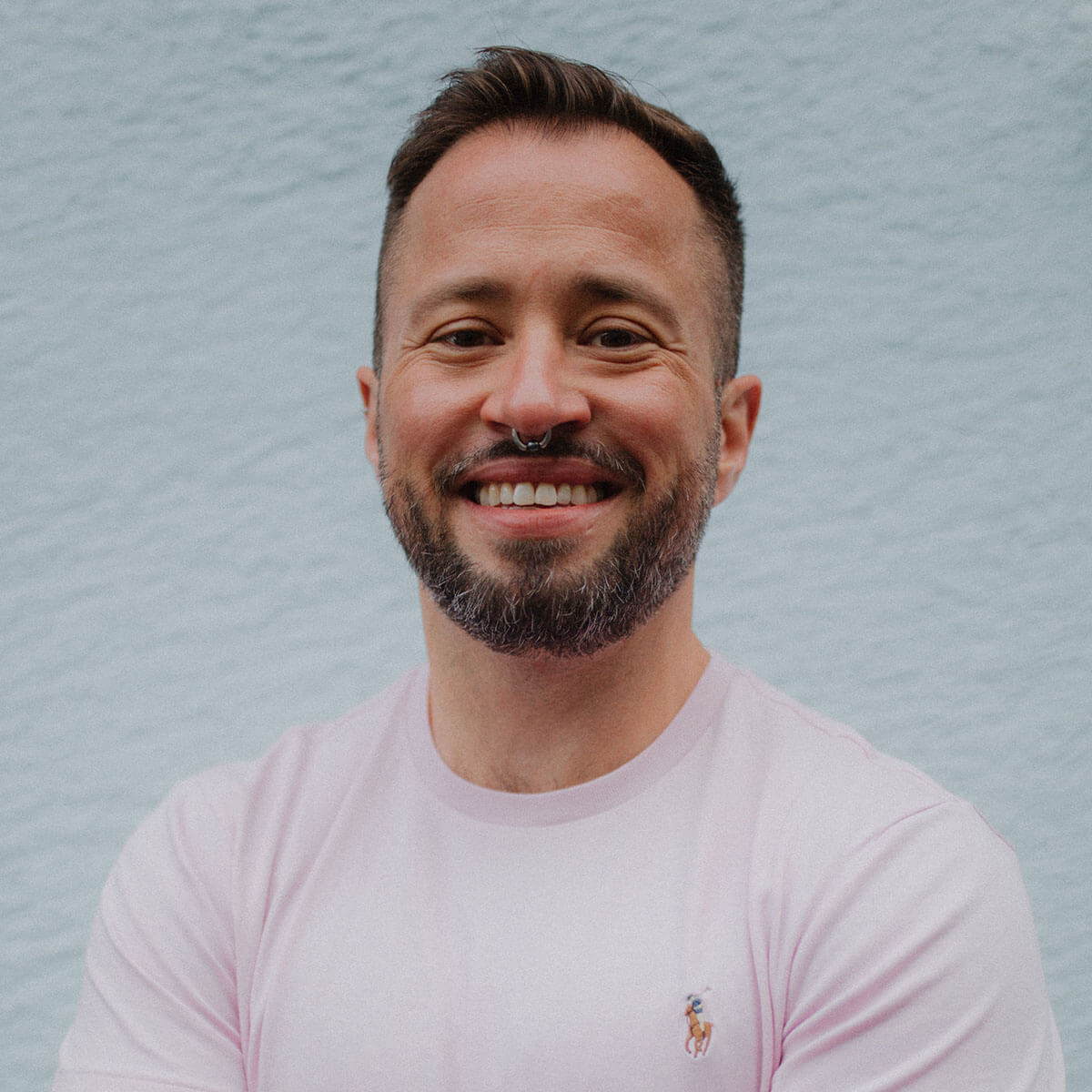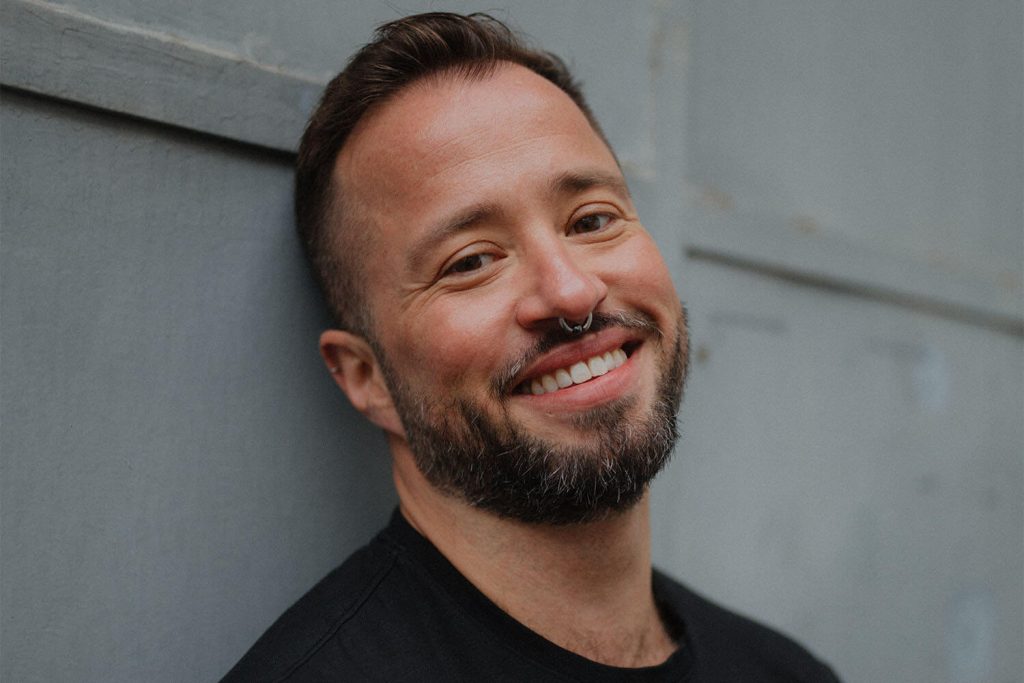Dr. Max Appenroth (no pronouns/he)
Non-binary people are the definition of freedom in action!

I am a trans activist and diversity consultant. With my consulting firm Diversity Factory, I help companies create more inclusive work environments. In doing so, I have turned my passion into my profession.
Everyone brings characteristics, experiences and perspectives that make us unique. Where do we come from and how did we grow up? What citizenship do we have? What gender? Who do we love? What physical abilities do we have or may we not have? There are very different dimensions of diversity that come together and work together in us as human beings. For example, I am a trans person in a gay relationship. I come from a classic working:class family. Most likely, I am also neurodiverse, even though that is undiagnosed. These are all perspectives that I bring with me and that influence my everyday life and experiences – as well as my opportunities and barriers in society. This is exactly what I want to educate about with my work and show how we can create equal opportunities for all people and break down barriers.
I think I would create a therapy place for all people. Everyone should actively engage with themselves for once, and not just out of the motivation of having to treat a problem, but as a self-care aspect. I think if everyone had access to a professional counseling setting, that would go a long way. If nothing else, dealing with transgenerational trauma can help us better understand social phenomena – and irrational fears. For example, my parents were both very poor as children and didn’t have enough to eat. When I feel bad today, the first thing I do is go shopping in bulk.
I had a total of four coming out experiences. First, I came out as a lesbian when I was 13, because I noticed: As long as I’m perceived as a woman, it doesn’t really work with men. Ten years later I realized: I’m not a woman at all. Then things suddenly made sense: that I do find men exciting, but not in the heterosexual dynamic. Today I’m married to a man and have come out as gay accordingly. In 2020, I also broke away from the societal idea that I have to be either a man or a woman. Now I am read as a man, but even that shoe didn’t fit 100 percent. I’ve found for myself that I fit more on the non-binary spectrum. I am comfortable as a male, but I am more than simply “just” male. Just because of these different perspectives and experiences that I bring, I go beyond the gendered framework of male and female. I’m very happy with that today, because I can allow myself to do things that I used to forbid myself to do. I used to think that as a man I wasn’t allowed to do certain things. For example, I didn’t paint my nails for a long time, even though I always thought it was great.
It’s about freedom. Non-binary people are the definition of freedom lived! We keep telling ourselves in our society that we are all free, but we live by such rigid norms and rules that dictate what gender can and cannot do. In doing so, we rob ourselves of our freedom. Sometimes I feel that the rejection and hostility that queer people, especially trans and non-binary people, face also has a bit to do with envy, because we take away that freedom. But what the people who hostile us often don’t understand: We don’t want to completely question the norms of gender. We don’t want to abolish gender or take anything away from anyone: Those who feel comfortable in their birth gender, after all, nothing changes for him or her. The only thing I would like is for us to be accepted just like everyone else.
Both are true. On the one hand, we are making great strides. Queer people are becoming more visible, and the Internet has brought huge advantages. But as visibility increases, so does counter-pressure. And unfortunately, it’s also a very well-organized counter-pressure. We see a regression worldwide in terms of the legal situation for queer people. The voices against gender diversity are getting louder and louder around the world. And they’re doing so in a way that threatens our very existence. In the U.S., particularly in Florida, health care for trans people is being restricted. Trans people can no longer visit public restrooms without major problems, or I would have to go to the women’s restroom there now. You are no longer allowed to show gender diversity on the street, meaning with my colorful hair and nail polish I would run the risk of being arrested. Trans children whose parents want to support them in their transition may be removed from families by state social services because of perceived “child welfare risk.” Restriction of health care, participation in public life, children taken from their families – all these are criteria for the definition of genocide according to the UN.
Behind this is a political movement, an alliance of fundamentally religious, mostly Christian groups, and right-wing nationalist and conservative parties, behind which there is a very strong financial network. In Europe, too, a lot of money is flowing into the dissemination of fake news. Myths about trans people are spread, which further fuel fears in the population.
I can reassure this faction: I didn’t see a single children’s book in my childhood that depicted gender diversity, and yet I sit here today as a proud, queer trans person.
Suicidality is the second leading cause of death among adolescents. For queer youth, this rate is four times higher [MA1]. Suicides can be prevented if young people grow up in an environment that supports them by allowing them to see themselves – for example, through books that depict gender and sexual diversity. There is still a lack of sensitivity here about what such a small children’s book can do.
For example, share this interview on social media! Educate yourself and share the content of diverse people, make them more visible. Even though you might not be queer yourself: we also need allies who contribute from their position to make sure our position is heard.

